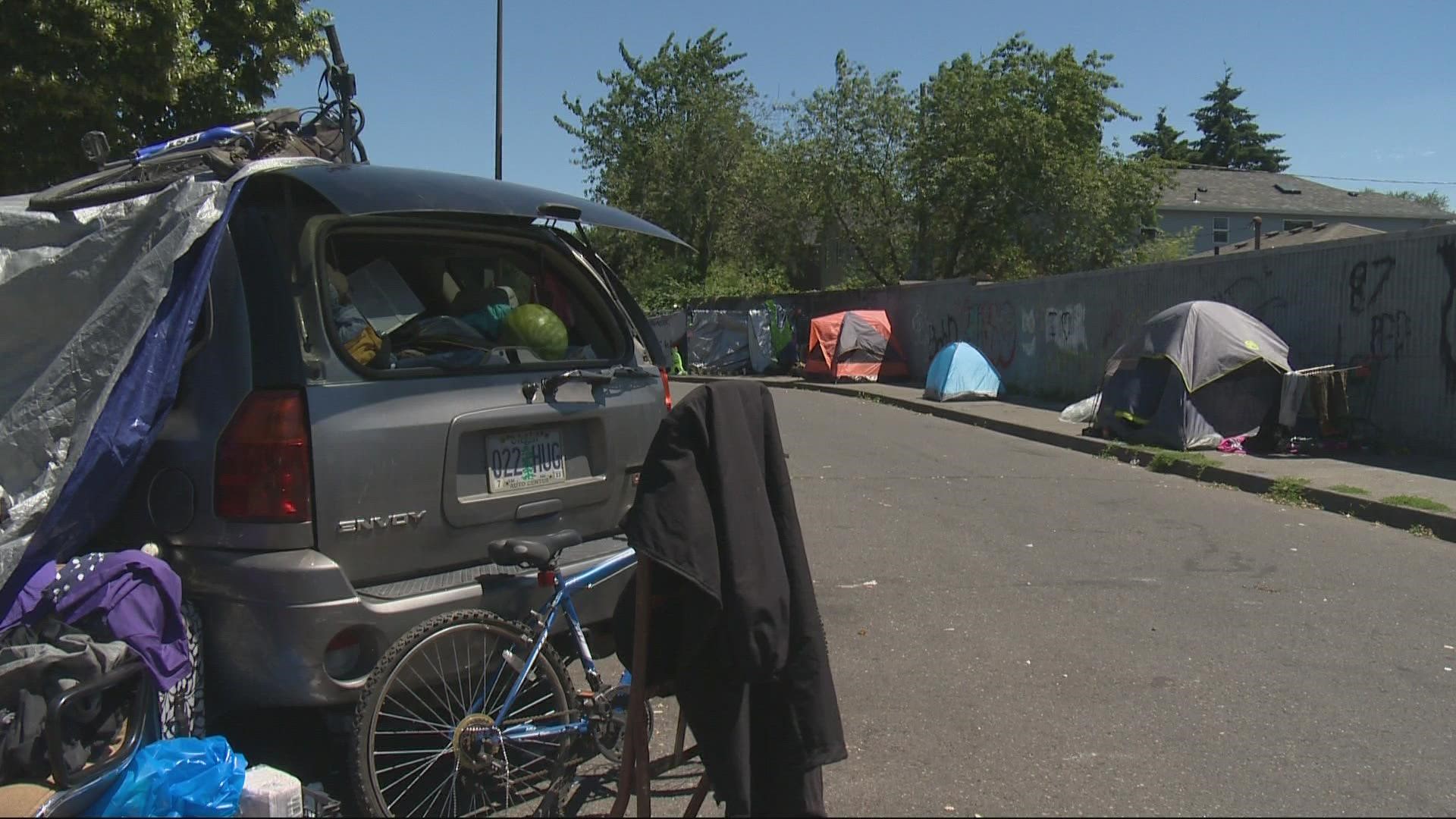PORTLAND, Ore. — Tents, broken-down cars, piles of garbage and RVs line the streets off Southeast 80th and Powell. It's a residential neighborhood turned nightmare for families who live there.
“I’m living in a nightmare neighborhood,” said Christina Hartnett who’s lived in the neighborhood for about five years.
“It’s really scary,” added her neighbor David Berkson.
For years, they’ve been watching the city’s homeless crisis spread across parts of Southeast Portland. Now, it’s right outside their front door.
“I want to cry. I just want my house back,” said Hartnett. “My lawn is now becoming a public bathroom.”
She fears leaving her house just to go to work.
“It is scary. When you have grown men meth raging in your driveway, the last thing I feel safe doing is going out and saying ‘Hey, can you please move so I can go to work.’”
Calling police and the city is an everyday chore, with little reward.
“So far no one has come to help us. No one has come to help us,” said Berkson.
Central City Concern Clean Start Crews assessed the site on Southeast 80th and Powell and Rhine on Thursday. It was one of about 1,900 other campsites reported just this week. In the past ten days, they found 272 encampments that posed a greater health and safety risk, which is why they haven’t removed the camps in this neighborhood.
But just getting the city to come out and assess it has been a full-time job.
“I have to report from like four different bureaus then I have to report that report to a report and then I have to report that report to a second report and it’s the only way to get any kind of traction,” said Hartnett.
“I feel like nobody hears us nobody cares about us,” added a mother who doesn’t let her children out to play.
“It’s very sad. They’re just kids so they want to play, and I don’t feel safe with them here.”
“I don’t know where they’re coming from,” said Tess who’s lived in the neighborhood for 35 years. Boards now cover her front door windows after they were smashed by those living on the streets. She’s also installed security cameras around her house.
“Scared because I don’t know what they’re going to do next,” she said.
It’s also affecting a nearby restaurant.
“I’ve found people standing there in their underwear scrubbing up in the sink in a sports bar in the bathroom,” said Cliff Perce who works at Bucket Brigade Sports Bar & Restaurant.
“It unnerves our customers when they pull in and see people overdosing on the sidewalks out in front of our restaurant.”
The Southeast Powell Boulevard Frontage Road is another place neighbors are afraid to go. That’s where 43-year-old Jennifer Czupryk lives.
“I sleep right here in the back seat,” she said while holding up a gray tarp in place of a door.
“I’m an addict and my family doesn’t condone it…I just lay the seats down and we climb in the back.”
She wants to “coexist” with the neighborhood. “It’s just a matter of some homeless people are resentful towards the neighborhood because of the way they treat them,” she explained.
“Things aren’t always what they seem we aren’t always what we seem,” added Brendan Harvey who’s spent most of his life in and out of homelessness.
“Usually it has something to do with relapse, and after a relapse usually my housing falls out from under me and I usually have nowhere to turn,” he said. He understands why neighbors are frustrated.
“I feel like they have a right to be upset.” He’s seen firsthand the increase in violence from some of the campers.
“I feel like it’s just gotten a lot bolder, more rash, people aren’t afraid to do things that have to do with criminality.”
“It is going to take one of us getting severely hurt or killed before they will do anything to come help us,” Hartnett fears.
Meanwhile, the never-ending cry for help continues.
“it’s just been going on so long that we’re all over it they’re over it we’re over it everybody’s over it,” said Perce.
The city only has enough resources to remove 50 encampments a week. They assess each site generally within 48 hours of it being reported and get reports of hundreds of high-risk sites each day.

